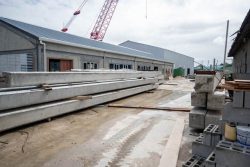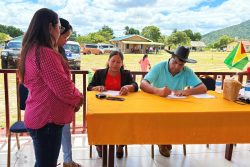HASSA, Turkey, (Reuters) – Turkey shelled targets in northwest Syria yesterday and said it would swiftly crush U.S.-backed Kurdish YPG fighters in an air and ground offensive on the Afrin region beyond its border.
The three-day-old campaign has opened a new front in Syria’s multi-sided civil war, realigning a battlefield where outside powers are supporting local combatants.
While Washington and other Western capitals expressed concern, Turkish President Tayyip Erdogan said he had secured a go-ahead for the campaign from Russia, principal backer of Syrian President Bashar al-Assad, long Turkey’s foe.
Turkey sees the YPG presence on its southern border as a domestic security threat.
Turkish forces and their Syrian anti-Assad rebel allies began their push on Saturday to clear the northwestern border enclave of Kurdish YPG fighters. Ankara considers the YPG to be allies of insurgents that have fought against the Turkish state for decades. The United States, meanwhile, has armed and aided the YPG as its main ground allies against Islamic State.
Senior U.N. officials briefed the United Nations Security Council behind closed doors on Monday, at the request of France, on the humanitarian and political situation in Syria.
“With respect to the situation in Afrin, it was of course part of the conversation,” said French U.N. Ambassador Francois Delattre after the meeting, adding that it was mentioned by most of the 15 council members. “France calls on Turkey for restraint in the volatile environment that we all know in Syria.”
But Erdogan said Turkey was determined to press ahead. “There’s no stepping back from Afrin,” he said in a speech in Ankara. “We discussed this with our Russian friends, we have an agreement with them, and we also discussed it with other coalition forces and the United States.”
U.S. Secretary of State Rex Tillerson said Washington had proposed working with Turkey and forces on the ground in Afrin to “see how we can stabilise this situation and meet Turkey’s legitimate concerns for their security.”
But Turkey said Washington must end its support for the Kurdish YPG militia before any proposal for cooperation: “If they want a cooperation, we are ready for this cooperation. As the first step to take, they can stop arming terror groups and take back weapons already given,” Deputy Prime Minister Bekir Bozdag told reporters after a cabinet meeting.
Syria has objected to the Turkish incursion, and Moscow, which controls parts of Syrian air space on behalf of its allies in Damascus, has not confirmed giving a green light to it. But Russia does not appear to be acting to prevent it, and has pulled its own troops out of the Afrin area.
Iran, Assad’s other main military supporter, called for a halt to the operation. Foreign Ministry spokesman Bahram Qassemi said the Afrin campaign could lead to “the return of regional terrorism and extremism”, according to state television.
The YPG’s Afrin spokesman, Birusk Hasaka, said there were clashes between Kurdish and Turkish-backed forces on the third day of the operation, and that Turkish shelling had hit civilian areas in Afrin’s northeast.
Afrin would be a “quagmire from which the Turkish army will only exit after suffering great losses”, said a statement from the YPG-led Syrian Democratic Forces umbrella group.
The YPG said Afrin had already been reinforced in anticipation of the Turkish offensive, and there were discussions over whether to send more reinforcements from other YPG-held territory, which is separated from Afrin by areas held by Syrian government forces.
The United Nations has said it is deeply concerned for the more than 300,000 people in Afrin. Spokeswoman Linda Tom said there were reports of people displaced within Afrin by the fighting, and of smaller numbers heading to nearby Aleppo.
Ankara has been infuriated by U.S. support for the YPG, one of several issues that have brought relations between the United States and its Muslim NATO ally close to breaking point.
Erdogan has also pledged to drive the SDF from the town of Manbij to the east, part of a much larger area of northern Syria controlled by the YPG-led SDF. That raises the prospect of protracted conflict between Turkey and its allied Free Syrian Army factions against the U.S.-backed Kurdish fighters.
Turkish Deputy Prime Minister Mehmet Simsek played down the long-term risks: “Our investors should be at ease, the impact will be limited, the operation will be brief and it will reduce the terror risk to Turkey in the period ahead,” he said.
A senior Turkish official declined to give a timeframe but said the operation would “move fast”, adding that Turkey believed there was some local support for its action in both Afrin and Manbij.
YPG official Nouri Mahmoud said Turkish-backed forces had not taken any territory in Afrin. “Our forces have to this point repelled them and forced them to retreat,” he told Reuters.
A Turkish official said Turkish troops and allied Free Syrian Army fighters had begun to advance on Afrin’s eastern flank, taking control of a hill northwest of the town of Azaz. An FSA commander later told Reuters YPG forces had recaptured the summit of Barshah hill.







